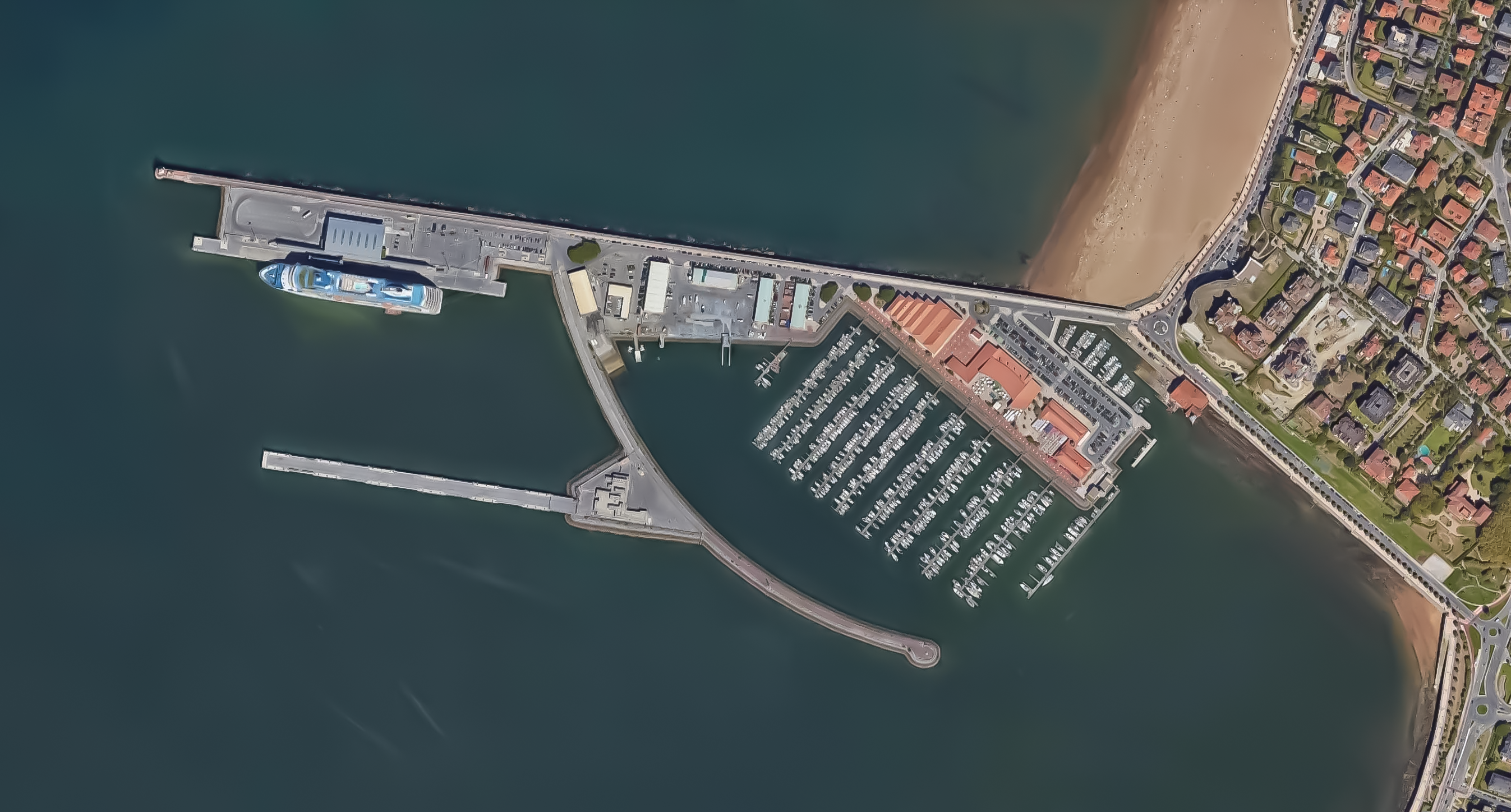The roadmap “Getxo/Bilbao Sustainable Port-City: An Integrated Approach 2030”, starting point of a process rooted in dialogue, transparency and commitment to the general public.
The Bilbao Port Authority is working on the design of a new sustainable and participatory management model for the Getxo marina and cruise ship terminal, in line with the metropolitan strategy and the United Nations 2030 Agenda for Sustainable Development. This initiative is supported by the UN Local2030 Coalition Secretariat for the implementation and development of the Sustainable Development Goals (SDGs), with a view to making Bilbao an example for other ports around the world. The Getxo Town Council and other stakeholders will be actively engaged in this process, which will include a period of active listening and public participation to collectively draw up the best possible plan for the future.
The design of the new model provides for an open, modern and sustainable area, fully integrated into urban life in Getxo and looking to further strengthen the role of the port as a driver of the economy and social development through cooperation and dialogue. Within a wider context, this strategic transformation is in keeping with that of the Bilbao metropolitan area itself over recent decades, forming part of a vision of local development in which the transformation of the port is catalytic and contributes to the transformation of the entire province of Bizkaia.
The roadmap, entitled ‘Getxo/Bilbao Sustainable Port-City: An Integrated Approach 2030’, covers the area of the Getxo marina and the current cruise ship terminal, both of which form part of the Spanish State Ports Authority (Ministry of Transport, Mobility and Urban Agenda of the Spanish Government). The Port Authority is thus ushering in a new era for the port, one that is more equitable, inclusive and committed to the future of the municipality whilst furthering its transformation into a lively, open area that combines nautical activities with leisure facilities for local people and businesses and integrating the new model of port into the urban environment.
The project is expected to be structured and defined within a maximum period of two years, though the institutions involved are keen to present it sooner.

As Amaia Agirre, mayoress of Getxo, explained, “we are working together as institutions to protect our common heritage and to ensure a stable and shared future for the marina and its surroundings. Getxo is now embarking on an exciting new chapter: a more open, more sustainable and better integrated marina that will be a source of pride for all the people of Getxo.”
Ivan Jimenez, President of the Bilbao Port Authority, emphasised that “this process, in collaboration with Getxo Town Council, marks the beginning of an ambitious transformation, rooted in institutional cooperation and a strong commitment to the people of Getxo and the province of Bizkaia. The Port Authority is fully involved in the design of a new model of green port that is of use for society, combining nautical activity with environmental, economic and social sustainability within a project that aims to be an international benchmark in port-city integration.”
For his part, Sébastien Vauzelle, Head of the UN Local2030 Coalition Secretariat for the implementation and development of the Sustainable Development Goals, stated: “The Getxo/Bilbao Sustainable Port-City project is an inspiring example for ports and cities around the world through the Local2030 Hub Euskadi.”

 Port access
Port access